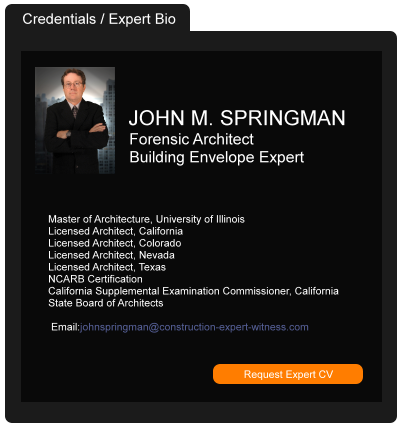New York Appellate Team Obtains Affirmance of Dismissal of Would-Be Labor Law Action Against Municipal Entities
August 12, 2024 —
Lewis Brisbois NewsroomNew York, N.Y. (July 11, 2024) - In Charlot v. City of New York, ___ A.D.3d ___, 2024 NY Slip Op 03161 (2d Dep’t 2024), New York Associate Dean Pillarella, a member of the Appellate Practice, recently obtained an affirmance of the lower court’s dismissal of the plaintiff’s action against the City of New York (“the City”) for failure to timely serve a notice of claim. New York Partner Meghan Cavalieri, a member of the Construction Practice, and her team authored and argued the initial motion to dismiss.
The plaintiff alleged to have sustained injuries as a result of a construction-site accident on December 8, 2020, on City-owned property in the course of the construction of a school by the New York City School Construction Authority. N.Y. General Municipal Law (“GML”) § 50-e(1)(a), requires service of a notice of claim within 90 days after the claim arises as a condition precedent to the commencement of a tort action. The plaintiff served no notice of claim until June 2021 and commenced an action in January 2022, alleging violations of N.Y. Labor Law §§ 240(1), 241(6), and 200. Given the plaintiff’s failure to comply with GML § 50-e(1)(a), Meghan and her team rejected the notices of claim as untimely. The plaintiff then moved for leave to deem the notices of claim timely served nunc pro tunc. In response, Meghan and her team opposed the motion and cross-moved to dismiss the action.
Read the court decisionRead the full story...Reprinted courtesy of
Lewis Brisbois
Just When You Thought General Contractors Were Necessary Parties. . .
December 31, 2014 —
Christopher G. Hill – Construction Law MusingsDid you think that a subcontractor had to name a general contractor in a mechanic’s lien suit? I did. Did you think that nothing about this changed in the case where a Virginia mechanic’s lien was “bonded off” pursuant to Va. Code Section 43-71? I did.
Well, a recent Virginia Supreme Court case, Synchronized Construction Services Inc. v. Prav Lodging LLC, seems to at least create some doubt as to whether the a general contractor is a “necessary” party to a lawsuit by a subcontractor in the case where a bond is posted for release of a mechanic’s lien.
Read the court decisionRead the full story...Reprinted courtesy of
Christopher G. Hill, Law Office of Christopher G. Hill, PCMr. Hill may be contacted at
chrisghill@constructionlawva.com
Terminating the Notice of Commencement (with a Notice of Termination)
July 19, 2017 —
David Adelstein - Florida Construction Legal UpdatesThe notice of commencement is important for purposes of construction lien priority. Stock Bldg. Supply of Florida, Inc. v. Soares Da Costa Const. Services, LLC, 76 So.3d 313, 317 (Fla. 3d DCA 2011) (“[A] notice of commencement serves to determine the priority of liens under the Construction Lien Law.”). A lien relates back in time to the date the notice of commencement was recorded assuming the notice of commencement is still in effect when the lien is recorded (or an amended noticed of commencement is recorded). Lien priority is very important and the reason why a contractor should always want to ensure there is an effective notice of commencement in place rather than an expired notice of commencement.
For the same reasons why a contractor wants to ensure there is an effective notice of commencement, there are times an owner wants to terminate a notice of commencement. An owner may want to terminate the potential priority of a construction lien. For instance, say the owner is refinancing or obtaining a construction loan in the midst of construction. A lender will want to ensure its mortgage maintains first priority and certainly priority over a potential construction lien. Otherwise, why would a lender finance the construction if it does not maintain first priority. It generally will not. Thus, an owner needs to terminate the notice of commencement so that the closing occurs on the loan and the mortgage recorded before a new notice of commencement is recorded and construction continues.
Read the court decisionRead the full story...Reprinted courtesy of
David Adelstein, Florida Construction Legal UpdatesMr. Adelstein may be contacted at
Dadelstein@gmail.com
Construction Litigation Roundup: “The Jury Is Still Out”
October 30, 2023 —
Daniel Lund III - Lexology“The Seventh Amendment guarantees the right to a trial by jury for a legal claim in a civil action.” So, isn’t the law, well, the law?
Well, perhaps.
Some axioms to remember in contracting are that parties are typically able to agree in a contract to anything that is lawful, and that all such lawful agreements essentially become the “law” between the parties. It is on these principles that courts issue jurisprudence which becomes binding on future litigants – for example, concerning waiver of any right to trial by jury.
Hence, when a second-tier subcontractor on a federal project sought a jury for a lawsuit it had against a general contractor’s sureties, the sub was successfully rebuffed by the sureties based upon a waiver to trial by jury contained in the relevant subcontract. The court noted various matters to be considered in connection with the generally enforceable jury waiver – including the conspicuousness of the waiver (and, therefore, whether the subcontractor “knowingly” agreed to the waiver), as well as the relative bargaining power of the parties to the agreement (here, the sub was self-proclaimed to be a “leader in the construction contracting field”) – and affirmed the legality of the waiver.
Read the court decisionRead the full story...Reprinted courtesy of
Daniel Lund III, PhelpsMr. Lund may be contacted at
daniel.lund@phelps.com
Court of Appeal Opens Pandora’s Box on Definition of “Contractor” for Forum Selection Clauses
October 02, 2015 —
David A. Harris & Abigail E. Lighthart – Haight Brown & Bonesteel LLPIn Vita Planning and Landscape Architecture, Inc. v. HKS Architects, Inc. (“Vita Planning”), the First Appellate District held California’s Code of Civil Procedure section 410.42 (“Section 410.42”) which prohibits an out-of-state contractor from requiring a California subcontractor to litigate disputes in a state other than California, applies not only to traditional “contractors” and “subcontractors” but also to design professionals and architects.
In Vita Planning, a dispute arose when HKS, a Texas based architectural firm, refused to pay Vita Planning and Architecture (“Vita”), a landscape design firm, for work on a luxury hotel in Mammoth Lakes, California (“Project”). HKS contended it was not required to pay Vita until it was paid by the owner of the Project, and any claims regarding the work needed to be filed in Texas pursuant to a forum selection clause contained in a Prime Contract between HKS and the Owner. The forum clause was “incorporated by reference” into an unsigned “standard form” agreement between HKS and Vita. Despite the forum clause, Vita filed a Complaint against HKS in Marin County Superior Court.
Reprinted courtesy of
Abigail E. Lighthart, Haight Brown & Bonesteel LLP and
David A. Harris, Haight Brown & Bonesteel LLP
Mr. Harris may be contacted at dharris@hbblaw.com
Ms. Lighthart may be contacted at alighthart@hbblaw.com
Read the court decisionRead the full story...Reprinted courtesy of
Economic Loss Rule Bars Claims Against Manufacturer
November 02, 2020 —
David Adelstein - Florida Construction Legal UpdatesThe economic loss rule lives to bar a claim against a product manufacturer in a real estate transaction. In a products liability action, there needs to be personal injury or property damage, other than to the property itself, in order to recover economic damages. Otherwise, the economic loss rule will bar the recovery of such economic losses when the economic losses deal to the product itself. This is important to keep in mind in any product liability action against a manufacturer.
In a recent case, 2711 Hollywood Beach Condominium Assoc’n, Inc., v. TRG Holiday, Ltd., 45 Fla. L. Weekly D2179a (Fla. 3d DCA 2020), a condominium association purchased the condominium from the developer. Subsequently, it noticed leaks with the fire suppression system in the condominium and sued multiple parties for damages for repairs due to the leaks and the replacement of the fire suppression system. One of the parties sued in negligence and strict liability was a manufacturer of pipe fittings used in the fire suppression system. The manufacturer moved for summary judgment based on the economic loss rule and relying on the 1993 Florida Supreme Court opinion in Casa Clara Condominium Assoc’n v. Charley Toppino & Sons, Inc., 620 So.2d 1244 (Fla. 1993), holding “the economic loss rule limited a defendant’s tort liability for allegedly defective products to injuries caused to persons or damage caused to property other than the defective product itself.” 2711 Hollywood Beach Conominium Assoc’n, supra. The trial court agreed with the manufacturer and granted summary judgment. On appeal, the Third District affirmed based on the economic loss rule:
The Association bargained for, purchased and received a building; [the manufactuer’s] fittings were only a component of the FSS [fire suppression system], incorporated into the building. Applying the rule set forth in Casa Clara, the Association purchased a completed building from the developer. [The manufactuer’s] fittings were “an integral part of the finished product and, thus, did not injure ‘other’ property.” Injury to the building itself is not injury to “other” property because the product purchased by the Association was the building. See Casa Clara, 620 So. 2d at 1247. The economic loss rule therefore bars the Association’s recovery as to [the manufacturer] to the extent that it sought damages to replace the FSS [fire suppression system] and repair damage to the building.
2711 Hollywood Beach Conominium Assoc’n, supra (internal citations omitted).
Read the court decisionRead the full story...Reprinted courtesy of
David Adelstein, Kirwin Norris, P.A.Mr. Adelstein may be contacted at
dma@kirwinnorris.com
EPA Seeks Comment on Clean Water Act Section 401 Certification Rule
July 19, 2021 —
Karen Bennett - Lewis BrisboisThe Environmental Protection Agency (EPA) announced that it will revise a 2020 final rule clarifying requirements for water quality certification under the Clean Water Act (CWA). 85 Fed. Reg. 42210 (June 2, 2021). CWA Section 401 requires states and tribes to certify that any discharges associated with a federal permit will comply with applicable state or tribal water quality requirements.
In an effort to eliminate 401 certification being used as a tool for delaying or imposing conditions unrelated to protecting water quality on federal permits, the 2020 rule established limits on the scope and timeline for review and required any conditions on certification to be water-quality related. State and Tribal governments and environmental groups challenged the rule, arguing it constrained state and tribal decision-making authority by limiting the term “other appropriate requirements of State law” in CWA Section 401(d) to “water quality requirements” and “point source discharges.”
With EPA’s decision to revise the rule, many believe these same scope and timing limitations will be targets for change. Clients with experience, positive or negative, under the 2020 rule should consider submitting comments by the August 2, 2021 deadline.
Read the court decisionRead the full story...Reprinted courtesy of
Karen Bennett, Lewis BrisboisMs. Bennett may be contacted at
Karen.Bennett@lewisbrisbois.com
Quick Note: Independent Third-Party Spoliation Of Evidence Claim
June 18, 2019 —
David Adelstein - Florida Construction Legal UpdatesIn an earlier posting I discussed the difference between first-party spoliation of evidence and third-party spoliation of evidence.
There is NO independent cause of action for first-party spoliation of evidence because that can be dealt with directly in the underlying lawsuit. This deals with the assertion that an actual party to a lawsuit spoiled evidence.
Read the court decisionRead the full story...Reprinted courtesy of
David Adelstein, Kirwin Norris, P.A.Mr. Adelstein may be contacted at
dma@kirwinnorris.com


































































